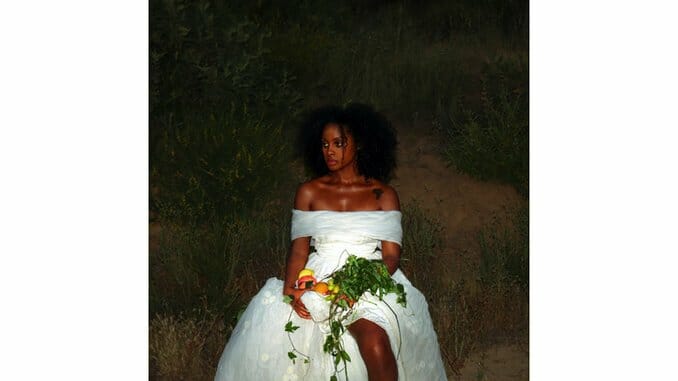Fana Hues Sees All Sides of Heartbreak on Hues
The California newcomer’s debut collection is an immensely promising, no-holds-barred reflection on bad relationships and their aftermath

Although Hues is billed not as Fana Hues’ debut album but instead a collection, it has nearly all the ambition and forthrightness of a fully formed LP. Across 24 uncompromising minutes, Hues painstakingly digs through the rubble of a failed relationship, threads of adoration and ecstasy glimmering amidst swaths of rage and regret. The Pasadena-based 25-year-old’s honesty is as captivating as her beat-heavy pop, which is indebted to psychedelia and rock as well as R&B and hip-hop.
Since Hues mostly comprises pained reflections on its creator’s former relationship, the exultant moments shine especially brightly. “The stars aligned / For your heart and mine,” Hues sings atop waltzing midtempo pianos during the chorus of “Death on the Vine.” Not that the joy lasts long—the very next lyric is the especially brutal couplet “Then slowly dragged us to / Death on the vine.” It’s melodramatic, more than a bit Shakespearean, and probably familiar to anyone who’s ever experienced a crumbling relationship, and it’s likely why the lovestruck Hues lyrics “Beyond the mountains and past the heavens / You say it’s all mine if I want it” are on a song conversely titled “Notice Me.”
The hurt abounding through Hues likewise makes the collection’s sparse sexual lyrics jump forward like the new construction on a block full of longstanding rowhomes. “I’ll rest on his face right in the mirror / Make sure you hear us / Come and kiss ya,” she sings on “Layup,” a bold fusion of rapping, R&B and kicks that sound like J Dilla express-shipped them from heaven. It’s hip-hop braggadocio with a sick twist—the person who’s presumably going down on her isn’t her partner, though her partner can hear the whole affair. Her justification? “You led me astray / What more can I say.” And when she is having sex with her partner, she’s “searching for soul,” because her partner sure can’t complete her.
-

-

-

-

-

-

-

-

-

-

-

-

-

-

-

-

-

-

-

-

-

-

-

-

-

-

-

-

-

-

-

-

-

-

-

-

-

-

-

-








































